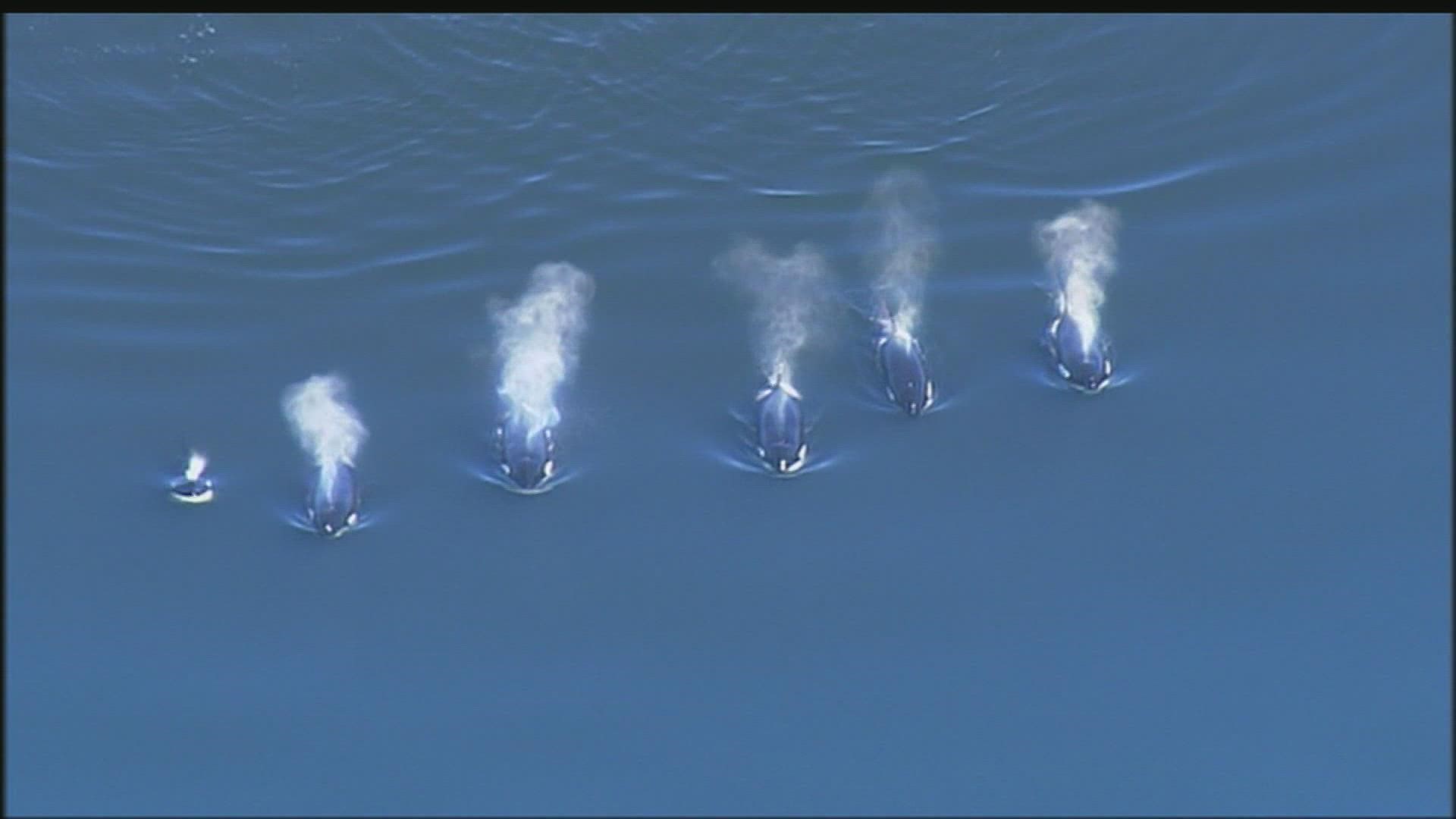PORT TOWNSEND, Wash. — Should orcas have rights? One western Washington community has taken a step toward granting them the same rights as people.
Southern Resident killer whales are as synonymous with the Pacific Northwest as mountains or rain.
"They're one of the more majestic and visible animals we have," said Port Townsend Mayor David Faber. "And they're animals that we see die."
Southern Resident orcas are dying at an alarming rate. There are only 73 left in the world, which is down from 88 in 2005 when they were first placed on the endangered species list.
Heartbreaking scenes from 2018 captured a mother orca carrying her dead calf for 17 days and 1,000 miles through the Salish Sea. Those images have helped prompt new calls to give the whales even greater protections -- like those offered to humans.
This week, Mayor Faber signed a proclamation giving "inherent rights" to Southern Resident orcas.
"There's been an emerging trend in law for years, and Washington has been a leader, recognizing that animals and living creatures are more than just objects," said Faber, an attorney.
It's called the Rights of Nature movement, a doctrine that says orcas, the Puget Sound, rivers, mountains and all of nature have the right to protection under the law and representation by a human guardian in a courtroom.
"Just as humans have rights simply for existing, so does nature," said Michelle Bender with the Earth Law Center.
Bender says the rights of nature are recognized in 30 countries, as well as Port Townsend, Malibu and San Francisco. A case was brought in Toledo, Ohio to protect Lake Erie.
The Pittsburgh, Pa., City Council unanimously passed an ordinance recognizing the rights of nature as part of a ban on fracking.
The nation of Ecuador has incorporated the doctrine into its constitution.
This allowed the Galapagos Marine Reserve to prosecute Chinese fishermen who illegally caught 6,000 sharks in the Galapagos Islands, levying a $5.9 million fine, confiscation of the vessel and jail time for the captain and crew.
"We’re not saying your rights are going to be considered less or nature is always going to win," said Bender, "but we’re trying to find that balance."
In the case of orcas, Bender says giving them rights gives them a legal voice when decades of state and federal protections fail.
"I think we're at the point where we have to do this," she said. "I think we're at the point where there's a lot of frustration with our existing system not doing what we expect it to do. Despite federal protections, for decades the orca population has continued to decline and we haven’t seen the bold action required to restore the population to health."
And while Port Townsend's proclamation carries no legal weight, it does open the door for legal action to further protect the Southern Resident orcas.
"It's about getting the agencies that can do something to take notice of demand from the local level," said Faber.
Many questions persist, however, in granting legal personhood to ecosystems.
For example, if someone is appointed the guardian of a river, is he or she responsible if the river floods?
Who has jurisdiction over a mountain range that runs through many different states, or even countries?
They are complexities that muddy the water, but supporters believe that if enough humans speak for the orcas they'll have a much better chance at survival.

